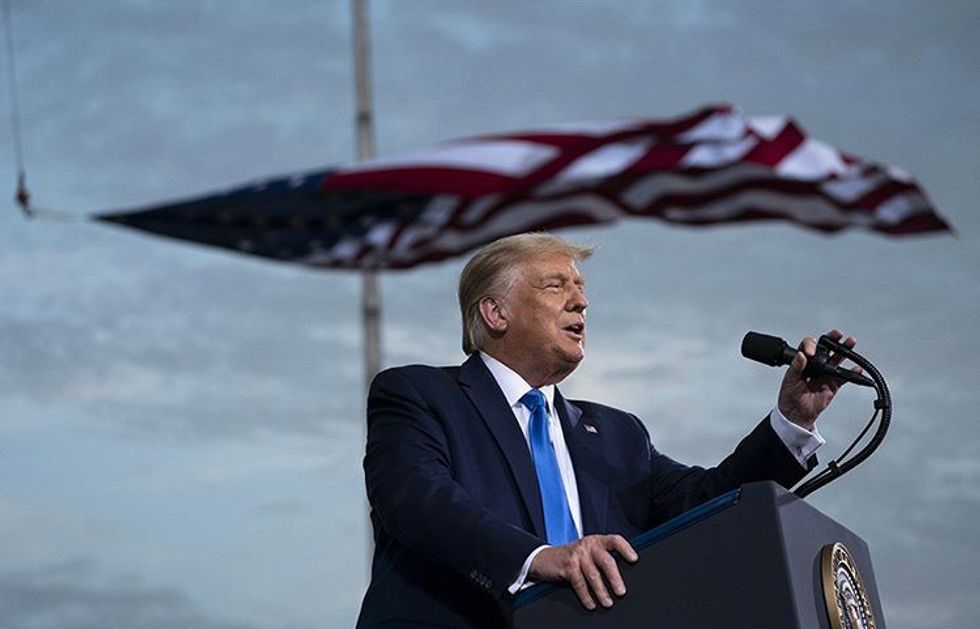In 2016, Donald Trump refused to commit to accepting the results of the election. Almost immediately, pundits and political theorists started putting out doomsday scenarios of an election with no clear winner, where the loser refused to concede and the country was left in a state of electoral limbo for months. But that didn't happen. Trump won, Clinton conceded, and the transition of power was peaceful and typical.
Now it's 2020, and like some kind of type of hellish deja vu, the same thing is happening. When asked, Trump repeated what he said in 2016; that he would have to "see what happens." In short, he has to find out if he's won first. Since then, the White House press secretary has since claimed the president will accept the results of a free and fair election.
But that's still far from reassuring. Trump has already started to lay the groundwork to claim that the election is illegitimate (only he loses, of course). Just look at the nine discarded ballots found in a (Republican-run!) district in Pennsylvania. They were likely put there erroneously, but the lack of evidence of foul play didn't stop the Trump campaign from putting out a graphic screaming that "Democrats are trying to steal the election."
It's here that the "free and fair" qualifier in the White House's statement becomes less reassuring than you might hope. You have the administration's assurance that Trump won't just declare himself president for life. But if he loses, he'll simply claim that the election wasn't free and fair to begin with. Either he wins or he was robbed.
It's a stunningly brazen strategy, a lever of power that I've never seen anyone willing to pull before. If you're willing to fly in the face of precedent and the usual rule book, you can do whatever you want. People can point out the troubling implications of what the campaign's doing. They can insist that it's harmful for the president to entertain the idea that he may not accept the results. They can try to push back against the administration's attempt to de-legitimize mail-in ballots. But there's really nothing you can do to stop Donald Trump from opening his mouth on November 4th (or whenever we learn who the winner is) and undermine the entire institution of American elections. After the Russian influences in the 2016 election, I fear that it wouldn't take much for the American public to lose faith in them altogether.
We're watching a president prepare to retroactively rig an election. And while, if Trump loses, I don't think his grandstanding will get him another term, I think he might do near-irreparable damage to American democracy on his way out.
















































